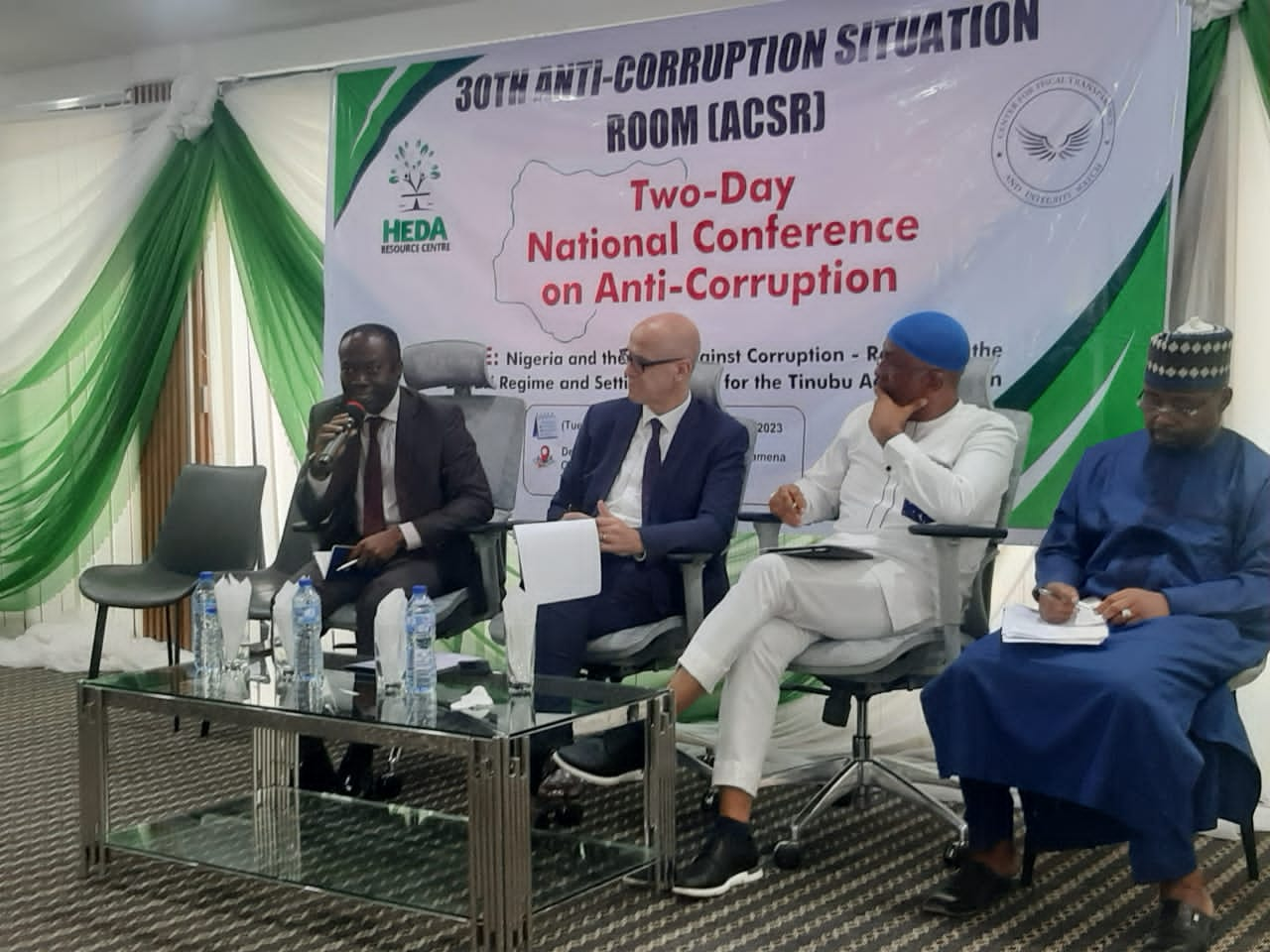The Independent Corrupt Practices and Other Related Offences Commission (ICPC) has advocated for consistent and sustainable plans in the fight against corruption saying that this would go a long way in achieving the desired results.
This, amongst others was the position of the Commission during a panel discussion at a two-day National Conference on Anti-Corruption organised by the Human and Environmental Development Agenda (HEDA Resource Centre) and the Centre for Fiscal Transparency and Integrity Watch (CEFTIW) in Abuja on Wednesday.
The ICPC Chairman, Professor Bolaji Owasanoye, SAN, OFR, who was represented at the event by the Commission’s Head of External Cooperation Unit, Mr. Kingsley Obi noted that the National Anti-Corruption Strategy (NACS) has reaffirmed the fact that there are little or no new laws in the fight against corruption, but the challenge of effective implementation strategy.
According to him, the NACS designed to curb corruption was not effectively implemented due to lack of government support, saying, however, that there was need for proactiveness from major stakeholders in order to achieve success.
“I want to say that having a document is one thing and implementing it is another thing. The issue of NACS 1 was not effectively implemented and that is the simple truth. We were all in the panels and all the committees. It was not effectively implemented because there was no much buy-in by the government then. The NACS 2 is being implemented pending government support.”
“At this point, we need to come to the point whereby we can demonstrate courage and effective planning. Courage without plan is very dangerous. So, we need to be effective in our plan in order to achieve success.
“At times you may have to kill the sacred cow to make progress in the fight against corruption. This ICPC has demonstrated this with the Constituency & Executive Projects Tracking Initiative which almost pitched her against NASS and some Executives”.
He stated further that there was need to look at the issue of being proactive within the limits of the various mandates and funding saying all this had been demonstrated by the ICPC within its constitutional mandates.
“So, in the fight against corruption, you need to have a successive and sustainability plan for whatever project or whatever action you want to take so that it will not end with you or be just a mere rhetoric.”
The ICPC boss also harped on the importance of inter-agency collaborations and the need to ensure that areas of specialties were recognised in order to move forward.
“I would like to say that the issue of inter-agency collaboration should be the thing that we need to work with, with regard to understanding the specifics specialties of certain agencies. Because if you take into account that they do not clash, then while we collaborate, then specialties must be recognized so that we can move forward.” he submitted.
On his part, the Country Representative of the United Nations Office on Drugs and Crime (UNODC), Oliver Stolpe raised concerns on the underutilization of data to drive informed decisions in the fight against corruption.
“…that we start to not only collect data, but we also start to listen to data and to act on data. And if we start to do that, then all of this anti-corruption capacity, institutionally, legal, and resource-wise, that Nigeria actually has, can be invested in a far more effective way than what is being invested right now.” he said.


